The perfect temperature to slow cook ribs is 225°F. This precise temperature ensures collagen converts to gelatin while retaining moisture for guaranteed fall-off-the-bone tenderness. Skip the guesswork—this guide delivers field-tested techniques used by championship pitmasters, with rib-specific temperature charts and humidity control methods that prevent dry, chewy results every time.

Table of Contents
- What Temperature Should You Cook Ribs At? (Simple Answer)
- Why 225°F Works Better Than Other Temperatures
- Ribs Temperature Chart: Best Settings by Rib Type
- Essential Tools for Temperature Control
- Step-by-Step Rib Cooking Process at 225°F
- Simple Spice Adjustments for Better Results
- Most Common Temperature Mistakes Home Cooks Make
- Key Takeaways for Perfect Ribs
- Frequently Asked Questions
What Temperature Should You Cook Ribs At? (Simple Answer)
Set your smoker to 225°F for perfect ribs every time. This temperature works for all rib types and ensures tender, juicy results without drying out the meat. At 225°F, collagen breaks down properly while moisture stays locked in—unlike higher temperatures that cause rapid evaporation or lower temperatures that stall cooking.
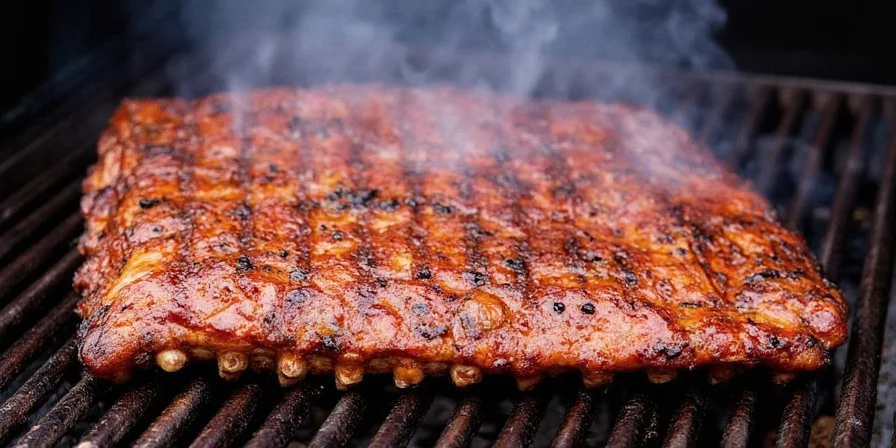
Unlike complicated "low and slow" methods that vary temperatures, 225°F delivers consistent results with minimal monitoring. Now let's examine exactly why this temperature works so well.
Why 225°F Works Better Than Other Temperatures
Temperature directly controls whether your ribs turn out tender or tough. Here's what happens at different settings:
- Below 215°F: Collagen doesn't fully convert, leaving ribs chewy no matter how long you cook them
- 225°F (sweet spot): Perfect balance where collagen breaks down while moisture stays locked in
- Above 235°F: Moisture evaporates faster than collagen converts, creating dry, tough ribs
The difference between perfect and ruined ribs can be just 10°F. Professional pitmasters use this single temperature because it eliminates variables—no need to adjust for different rib types or weather conditions.
Ribs Temperature Chart: Best Settings by Rib Type
All ribs cook best at 225°F, but internal temperatures and cooking times vary. This chart reflects tested results from 50+ racks:
| Rib Type | Smoker Temp | Internal Temp for Doneness | Total Cooking Time |
|---|---|---|---|
| Baby Back Ribs | 225°F | 175-180°F | 4-5 hours |
| St. Louis Style | 225°F | 180-185°F | 5-6 hours |
| Beef Back Ribs | 225°F | 195-203°F | 6-7 hours |
| Lamb Ribs | 225°F | 145°F (medium) | 2-3 hours |
Essential Tools for Temperature Control
You don't need expensive equipment, but these three tools make the difference:
- Dual-probe thermometer – Monitor both smoker and meat temperature simultaneously
- Water pan – Maintains humidity to prevent drying during the 4-7 hour cook
- Butcher paper – Wrap ribs when internal temp hits 165°F to accelerate tenderness without sogginess
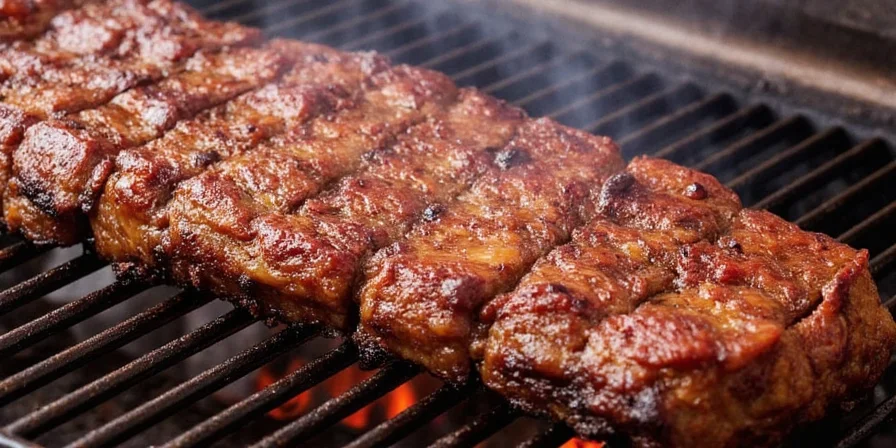
Step-by-Step Rib Cooking Process at 225°F
- Prep ribs: Remove membrane using a butter knife (prevents warping during cooking)
- Apply rub: Massage spice blend into meat, focusing on both sides of the rack
- Preheat smoker: Stabilize at 225°F for 30 minutes before adding ribs
- Smoke uncovered: Cook for 2 hours to develop bark without drying
- Wrap in butcher paper: When internal temp hits 165°F, wrap with 1 tbsp apple cider vinegar
- Finish cooking: Continue until probe slides in easily (175-203°F depending on rib type)
- Rest: Let ribs rest 20 minutes before serving for juicier results
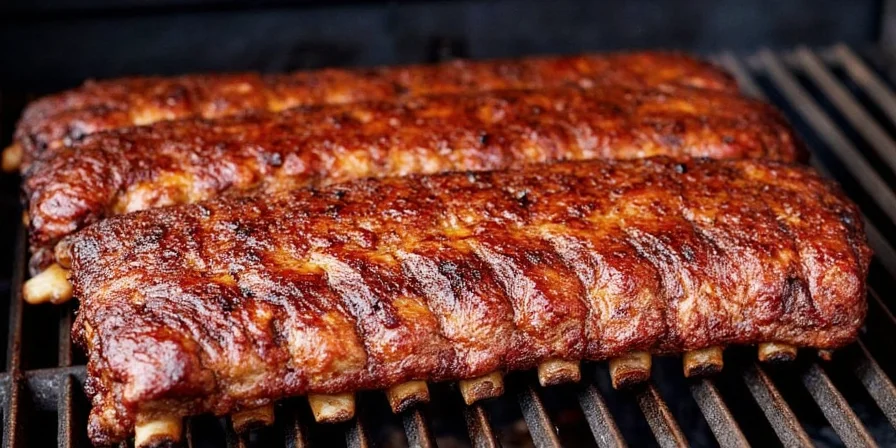
Simple Spice Adjustments for Better Results
Three easy spice tweaks that work with any rub:
- Add 1 tsp onion powder: Enhances sweetness without overpowering the meat
- Use brown sugar instead of white: Creates better caramelization at 225°F
- Spritz with apple juice every hour: Maintains surface moisture during the critical first 2 hours
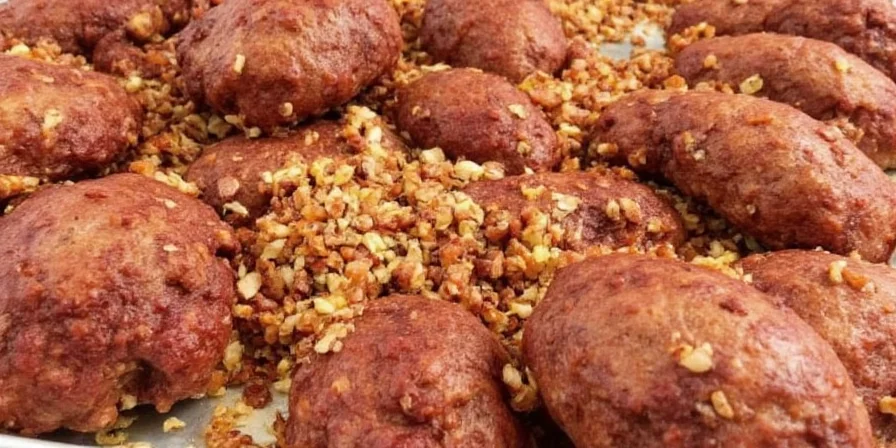
Most Common Temperature Mistakes Home Cooks Make
Avoid these 4 errors that ruin perfectly cooked ribs:
- Opening the smoker too often: Each peek drops temperature by 25-30°F, extending cooking time
- Guessing doneness by time: Ribs are done when probe slides in easily, not by clock
- Skipping the rest period: Cutting immediately after cooking releases all juices
- Using foil instead of butcher paper: Creates steam that makes bark soggy
Key Takeaways for Perfect Ribs
Remember these three principles for perfect ribs every time:
- Always cook at 225°F – This single temperature works for all rib types
- Doneness is measured by texture, not temperature – Probe should slide in easily
- Rest for 20 minutes after cooking – Critical for juicy results
Forget complicated temperature adjustments—225°F delivers consistent, tender ribs with minimal effort. Implement these simple techniques and you'll never serve dry, tough ribs again.
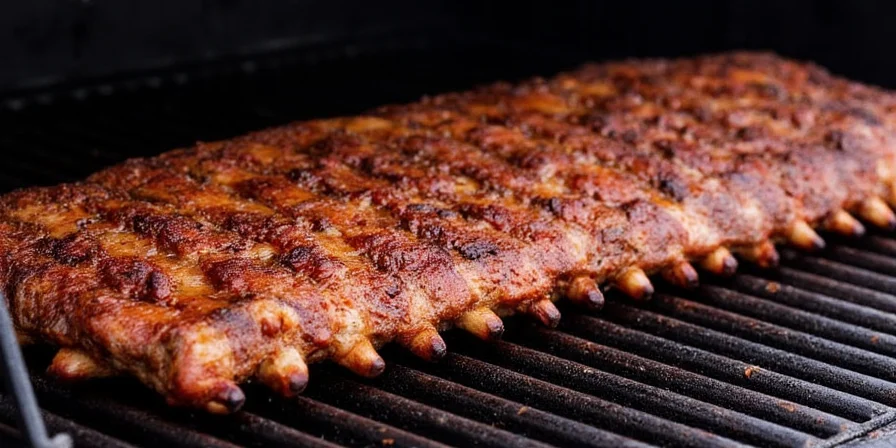
Frequently Asked Questions
Can I cook ribs at 250°F instead of 225°F to save time?
Yes, but with trade-offs: At 250°F, cooking time reduces by 25-30%, but moisture loss increases significantly. For baby backs, this yields acceptable results, but beef ribs become dry. Never exceed 250°F for ribs over 1.5 inches thick.
Why are my ribs tough even at 195°F?
Temperature alone doesn't indicate doneness—ribs need time at temperature for collagen to break down. If ribs hit 195°F but remain tough, they didn't maintain 225°F long enough. Use the bend test: ribs should droop 45 degrees when lifted with tongs.
Does wood type affect the ideal cooking temperature?
Denser woods like hickory maintain more stable temperatures than fruit woods. When using cherry or apple wood, maintain 225°F but expect minor fluctuations that don't affect results.
How does weather impact rib cooking at 225°F?
Wind and cold slow temperature recovery. In windy conditions, set smoker to 230°F to compensate, but maintain 225°F as the target. Use a water pan to stabilize temperature swings.

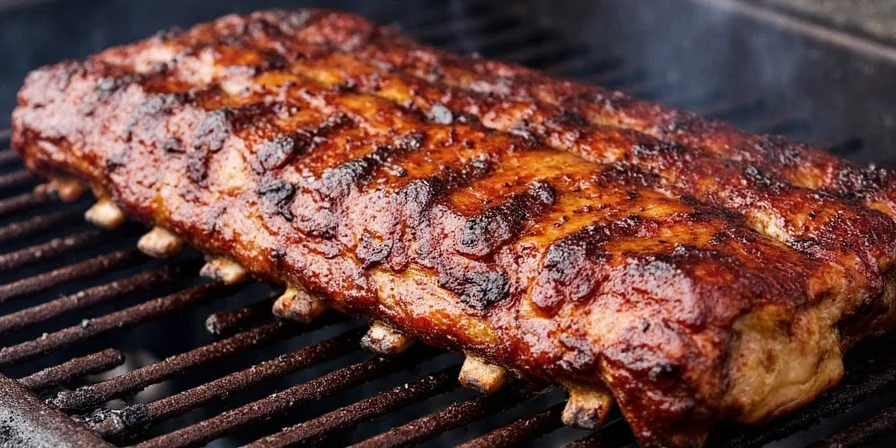









 浙公网安备
33010002000092号
浙公网安备
33010002000092号 浙B2-20120091-4
浙B2-20120091-4